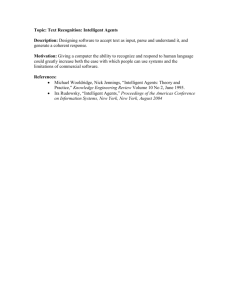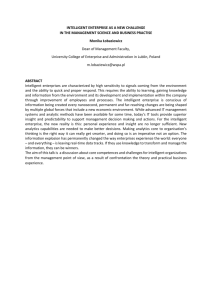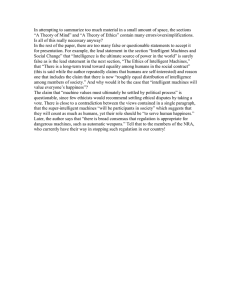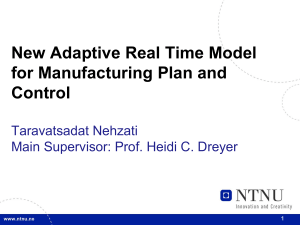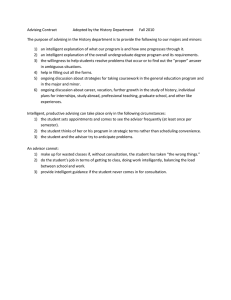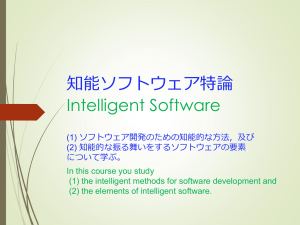Towards Intelligent Control of Complex Process Plants: Challenges and Opportunities
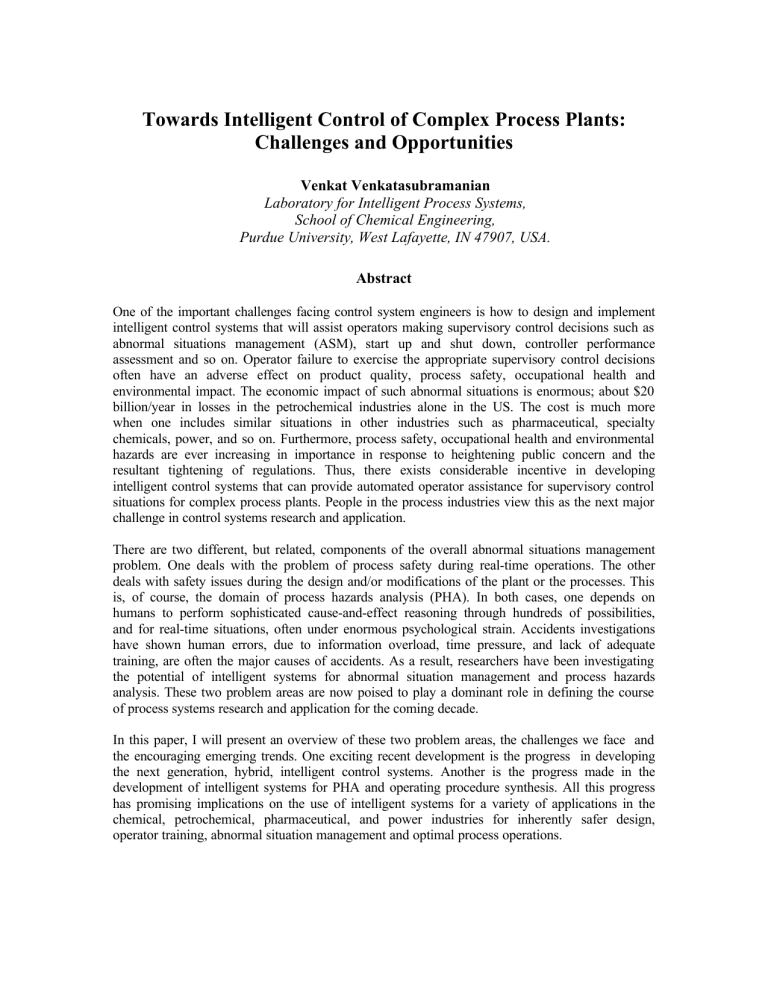
Towards Intelligent Control of Complex Process Plants:
Challenges and Opportunities
Venkat Venkatasubramanian
Laboratory for Intelligent Process Systems,
School of Chemical Engineering,
Purdue University, West Lafayette, IN 47907, USA.
Abstract
One of the important challenges facing control system engineers is how to design and implement intelligent control systems that will assist operators making supervisory control decisions such as abnormal situations management (ASM), start up and shut down, controller performance assessment and so on. Operator failure to exercise the appropriate supervisory control decisions often have an adverse effect on product quality, process safety, occupational health and environmental impact. The economic impact of such abnormal situations is enormous; about $20 billion/year in losses in the petrochemical industries alone in the US. The cost is much more when one includes similar situations in other industries such as pharmaceutical, specialty chemicals, power, and so on. Furthermore, process safety, occupational health and environmental hazards are ever increasing in importance in response to heightening public concern and the resultant tightening of regulations. Thus, there exists considerable incentive in developing intelligent control systems that can provide automated operator assistance for supervisory control situations for complex process plants. People in the process industries view this as the next major challenge in control systems research and application.
There are two different, but related, components of the overall abnormal situations management problem. One deals with the problem of process safety during real-time operations. The other deals with safety issues during the design and/or modifications of the plant or the processes. This is, of course, the domain of process hazards analysis (PHA). In both cases, one depends on humans to perform sophisticated cause-and-effect reasoning through hundreds of possibilities, and for real-time situations, often under enormous psychological strain. Accidents investigations have shown human errors, due to information overload, time pressure, and lack of adequate training, are often the major causes of accidents. As a result, researchers have been investigating the potential of intelligent systems for abnormal situation management and process hazards analysis. These two problem areas are now poised to play a dominant role in defining the course of process systems research and application for the coming decade.
In this paper, I will present an overview of these two problem areas, the challenges we face and the encouraging emerging trends. One exciting recent development is the progress in developing the next generation, hybrid, intelligent control systems. Another is the progress made in the development of intelligent systems for PHA and operating procedure synthesis. All this progress has promising implications on the use of intelligent systems for a variety of applications in the chemical, petrochemical, pharmaceutical, and power industries for inherently safer design, operator training, abnormal situation management and optimal process operations.
